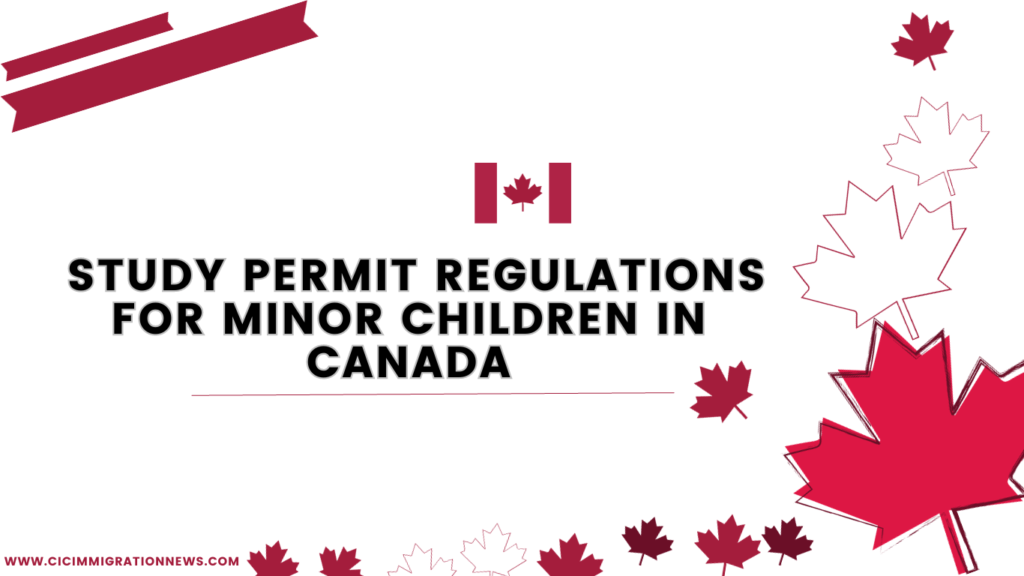Study Permit Regulations for Minor Children in Canada To start, let’s define who qualifies as a minor, which varies by province or territory, with some considering minors under 18 and others under 19.
Now, when it comes to study permits, if you’re a minor already in Canada, you can attend preschool, elementary, or high school without one in certain cases:
If you’re with parents seeking refugee status or already refugees.
If one of your parents is a Canadian citizen or permanent resident.
If one of your parents can legally work or study in Canada.
If neither of your parents is in Canada.
Remember, these rules differ depending on where you are, so it’s wise to consult Canadian immigration authorities.
For minors wanting to study in Canada, a study permit is essential. This applies even if you’re accompanying someone with temporary resident status who can’t study or work in Canada. Let’s explore different application scenarios:
Applying from Overseas: If you’re a minor outside Canada, you may be eligible for study permit exemptions. Visa offices should consider overseas minor children as students.
Applying at a Port of Entry (POE): If you plan to study in Canada as a minor, you should obtain a letter of introduction from a visa office before arriving. This letter allows you to apply for a study permit when you enter Canada.
Applying Inland: If you’re already in Canada and want to study, you can apply for a study permit while in the country. However, you must prove your academic status and your parent or guardian’s status in Canada. Custodianship arrangements, including care, health coverage, and financial support, must also be in place if needed.
Let’s delve into custodianship:
Mandatory Custodianship (Under 17): If you’re under 17, notarized declarations from your parents and custodians are required. These declarations confirm that your custodian can act on behalf of your parent.
Discretionary Custodianship (17 to 18 or 19): For those aged 17 to 18 or 19, custodianship decisions are case-specific. Factors considered include your level of study, financial independence, travel experience, accessibility of your parents or guardians, informal arrangements, and the safety of your environment.
In summary, if you’re a minor planning to study in Canada, apply for a study permit based on your unique situation, whether you’re overseas, at a port of entry, or already in Canada. If custodianship is required, follow the appropriate procedures based on your age.



